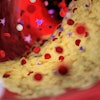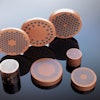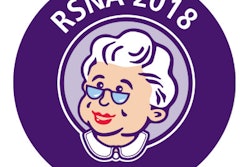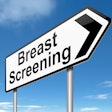
Physician burnout not only affects physicians but also may put patients at risk, according to a meta-analysis published online on September 4 in JAMA Internal Medicine. U.K. researchers found that patients treated by exhausted physicians were twice as likely to experience safety incidents.
Previous studies have shown that physicians with burnout are more likely to be involved in patient safety incidents; to fail on key aspects of professionalism that determine the quality of patient care, such as communication quality and empathy; and to receive lower patient satisfaction ratings, wrote a team led by Maria Panagioti, PhD, of the University of Manchester in the U.K.
Burnout is defined as occupational stress that consists of emotional exhaustion, depersonalization, and reduced efficacy. Panagioti and colleagues investigated whether physician burnout is linked to lower quality of care by searching a variety of medical literature databases for observational studies using the terms "physicians," "burnout," and "patient care." The analysis included 47 studies on 42,473 physicians working in any healthcare setting; the studies measured burnout using the Maslach Burnout Inventory tool.
The group used the following definitions of negative outcomes:
- Patient safety incidents: Unintentional events or hazardous conditions arising from the process of care rather than the patient's underlying disease that led to -- or could have led to -- inadvertent negative health consequences for the patient
- Professionalism: Lack of adherence to acknowledged treatment guidelines, reduced professional integrity, poor communication, and low empathy
- Reduced patient satisfaction: Ratings based on patient-reported measures
The researchers found that physician burnout was associated with a twofold increase in the risk of negative effects in all three categories: patient safety, quality of care, and patient satisfaction.
| Odds of low-quality patient care due to physician burnout | |
| Effects of physician burnout | Odds ratio |
| Overall increased risk of patient safety incidents | 1.96 |
| Depersonalization | 1.94 |
| Emotional exhaustion | 1.73 |
| Reduced personal accomplishment | 1.49 |
| Overall poorer quality of care due to low professionalism | 2.31 |
| Depersonalization | 3 |
| Emotional exhaustion | 2.71 |
| Reduced personal accomplishment | 2.49 |
| Overall reduced patient satisfaction | 2.28 |
| Depersonalization | 4.5 |
| Emotional exhaustion | 2.35 |
| Reduced personal accomplishment | 1.94 |
In addition, the association between burnout and low professionalism was stronger in residents and physicians who were early in their careers (that is, five or fewer years after residency), compared with middle- and late-career physicians.
Depersonalization appears to be the strongest negative effect of burnout, according to the group.
"The depersonalization dimension of burnout appears to have the most adverse association with the quality and safety of patient care and with patient satisfaction," the team wrote.
Panagioti and colleagues did not include specific suggestions about how to address the problem of burnout, aside from an appeal for healthcare organizations to establish structures to track and prevent it.
"Physician wellness and quality of patient care are critical and complementary dimensions of healthcare organization efficiency," they concluded. "Investments in organizational strategies to jointly monitor and improve physician wellness and patient care outcomes are needed."




















